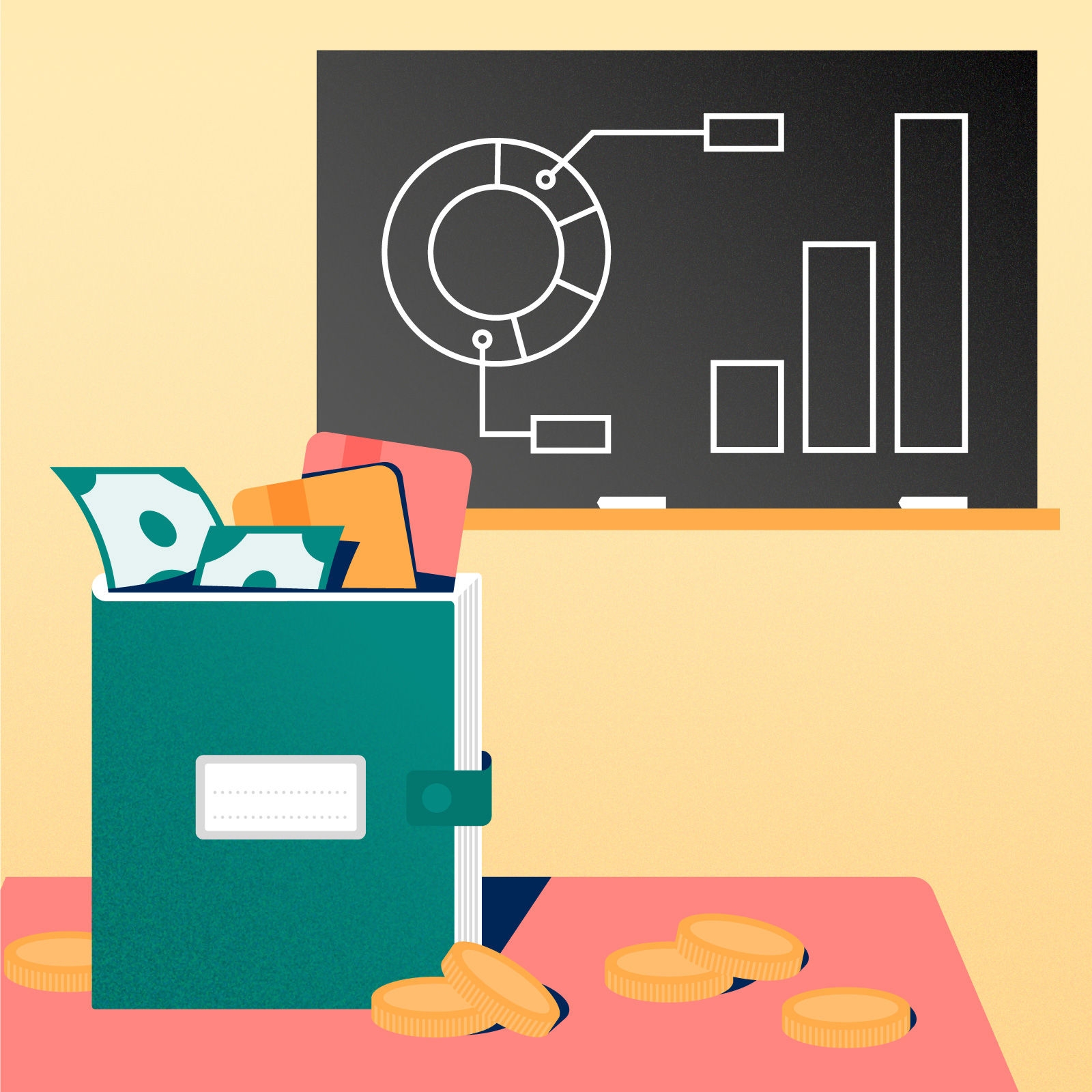Money lessons I wish I’d learned in high school
Think back to your high school days. How much did you know about money? Could you explain what a GIC was? How debt repayment works? How to build your credit score?
For too many of us, the answers to these questions would be "not much," "no," "no," and "no."
That’s why an increasing number of schools across Canada are incorporating financial literacy into their curriculum, recognizing that acquiring these skills at an early age can help set up young people for greater success after graduation.
So we sat down with four young employees doing an internship at Tangerine — Maryan Ali, Emily Anderson, Tommy Linden, and Marianne Semaan — to find out just how much they learned about finances in high school, what they know now, and what they think schools could do to better prepare their graduates.
How many years has it been since everyone here graduated high school?
Tommy: Two years for me.
Marianne: Five years ago.
Emily: Four for me.
Maryan: Six years.
What did you learn about money as a high schooler, either in class or outside of it?
Maryan: We never really learned about money; it just existed. It was something you knew you needed to get, which is why you had to do well in school to be able to get a good job — to make money! Money wasn't explained to me until I took a business course which explained it from an entrepreneurial perspective – profit, loss, revenue, ethics…
Marianne: The closest I got to learning about personal finance was when I started my first job early in high school, and my dad had set up a student bank account for me. While it was exciting to have a place to store all my money, my bank account was just that.
Emily: I'm in the same boat! I don't recall learning much about money management in high school from the curriculum. At most, we may have used tokens or dollar trading scenarios to learn math concepts. In university, I had to teach myself how to make a budget and learned the importance of paying off your credit card. So, I would say that the majority of my money-learning journey has been DIY.
Tommy: On my own time, I found many creators on Instagram, TikTok, and YouTube who educate students and young adults on how to manage their personal finances. I learned more about finances through social media than during formal schooling. I learned the importance of investing while I’m young, compound interest, saving money, and setting up accounts like TFSAs.
On my 18th birthday, I set up my own Tangerine Account so that I could manage and keep track of my own money. I think that the importance of accessibility is often overlooked, but Tangerine does a great job of making things simple for young adults looking to take control of their personal finances.
So now that you’re an adult, what do you wish you'd learned in school when it comes to financial literacy?
Tommy: I wish I had been taught about the different kinds of accounts and contribution limits. I wish someone had explained how credit scores are determined and checked and how to build them. I wish someone had told me how important financial decisions you make while young are and that these habits are extremely important to form sooner rather than later.
Marianne: On top of understanding the basics of banking and different account types, I would have loved to learn how to think about money for the long term. For example, investing or buying your first property, how to build a good credit score, or even saving for retirement. When you’re young, it’s difficult to think how your behaviours with money will impact you for the long haul.
Earn $2501 and 4.50% Savings rate†
Open a Chequing Account and move your pay. Plus open a Savings Account for this great rate.
If someone had asked you, "How do credit cards work?" when you were 15 or 16, what would you say?
Maryan: I didn't really understand how they work. I think I would have said it's a card used to make purchases that holds the money I get from the bank. Every adult has one, and you need it to buy a house.
Emily: I'd likely say that it's where you can get endless money that isn't really yours.
Tommy: From what I knew as a 15–16-year-old, I would say it’s how to pay for things if you don't want to use cash, but there is a monthly subscription cost.
You all sound like you would have been good candidates for high school financial literacy!
Speaking of which, in Ontario high schools starting in 2025, students will need to get 70 percent or higher on a financial literacy test to graduate. The new curriculum is taught in Grade 10 math and will help students "create and manage a household budget, save for a home or asset and protect themselves from financial fraud."
What do you think of this plan?
Emily: I do think this is a great start, but I can see students not understanding the true importance of this learning and potentially tuning out. I think this plan could be strengthened if they continued the segment throughout grades 11 and 12, teaching them even more skills, like how to do their taxes.
Marianne: I agree. I was under the impression that this would be an entire class, given that there are so many segments of financial literacy to learn. Hearing that it was only a component in math was a little disappointing. Unfortunately, when students are told they must achieve a certain grade to move on, they only focus on receiving that number to pass rather than actually soaking up the information.
Tommy: I like the thought behind it, but I don't know how effective it will actually be. In grade 10, I don't think I would have been mature enough to learn about these important topics. The best way to learn, in my opinion, is “trial by fire.” It was only when I was in charge of my own finances that I really learned about how money works. I think a mix of workshop-style classroom learning and real-life money experience is needed to gain a big picture understanding of money and personal finances.
So it sounds like what Ontario is doing is a start, but doesn't go far enough. Maybe you'd prefer something more like what B.C. has done, embedding financial literacy into every math course from K to 12.
Emily: Yes! It sounds like that would really teach the students skills and embed them into their lifestyles from a young age rather than having them dread another class with numbers and another big test they have to worry about.
Marianne: Yes, that sounds so much better! The perception around learning the topic will also change because it becomes an ongoing topic that students must incorporate into their yearly curriculum rather than something they need to get over and done with and probably forget within a year.
How would you describe your level of financial literacy today?
Maryan: I would describe myself as highly financially literate. I have a good credit score, and have always understood the importance of paying my credit card bills. In terms of investments, I still feel confused and can learn more about TFSAs, ETFs, GICs, etc. I feel like there’s still more learning I can do to save for the future better. However, my understanding of money is way better now than it was as a high schooler, and I can say it was all self-taught.
Marianne: Slowly but surely, my financial literacy is improving. As an adult, it can feel discouraging to try and understand financial concepts that seemed like you should have learned years ago. Thankfully, today, there are endless resources online to learn from that don’t make financial literacy intimidating. The hardest part is just committing to that first initial step of wanting to learn more.
Tommy: I think that today, I am more financially literate than ever because of the huge network of influencers who teach these important skills. I think there is still a ways to go before I can pay my own taxes or put a down payment on a house. At this point, I'm comfortable with saving, budgeting, and investing. While I have come a long way, despite no formal education, I'm still not there yet.
—Interview conducted by Ariel Teplitsky. Responses have been edited for length and clarity.



